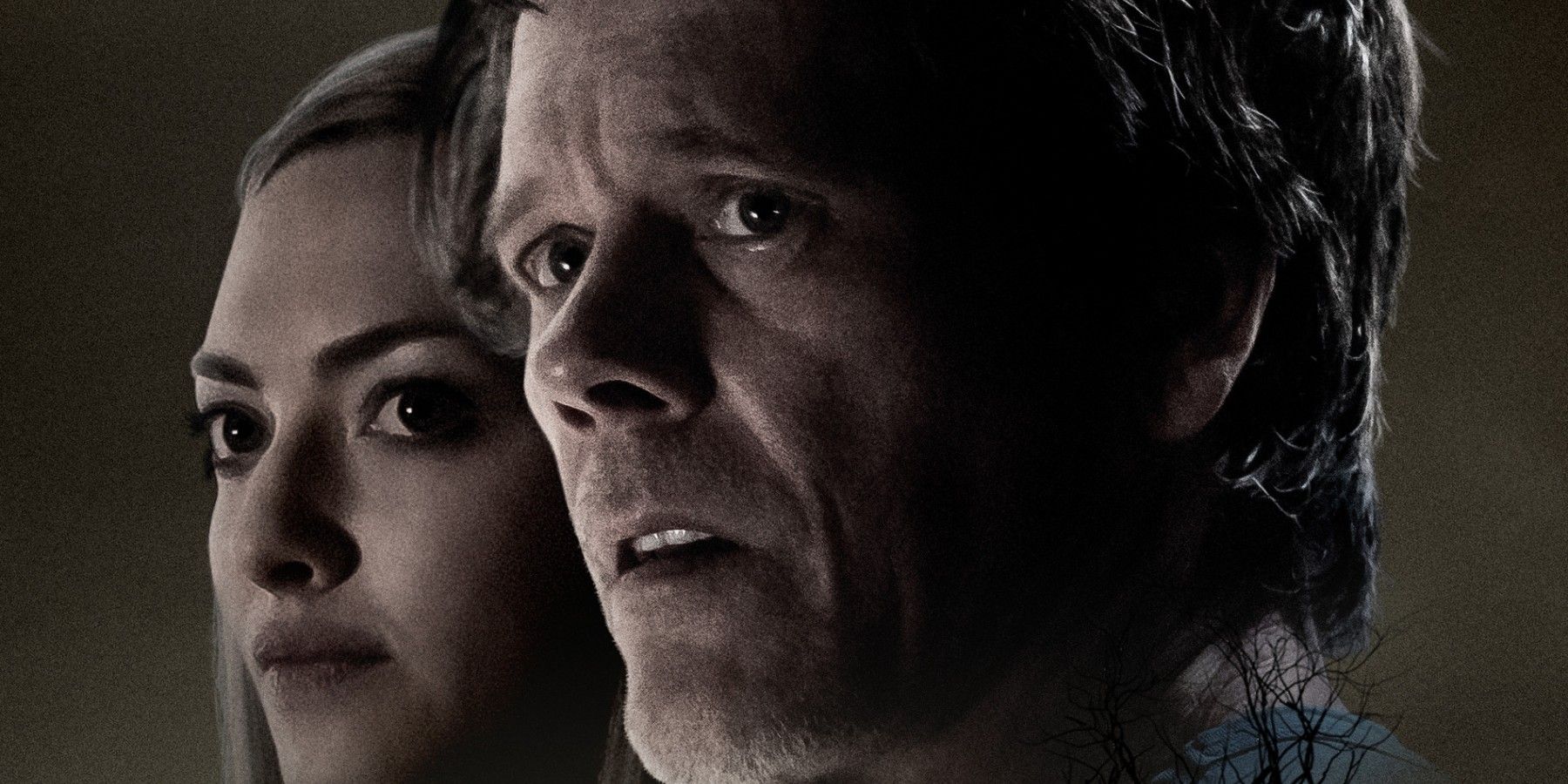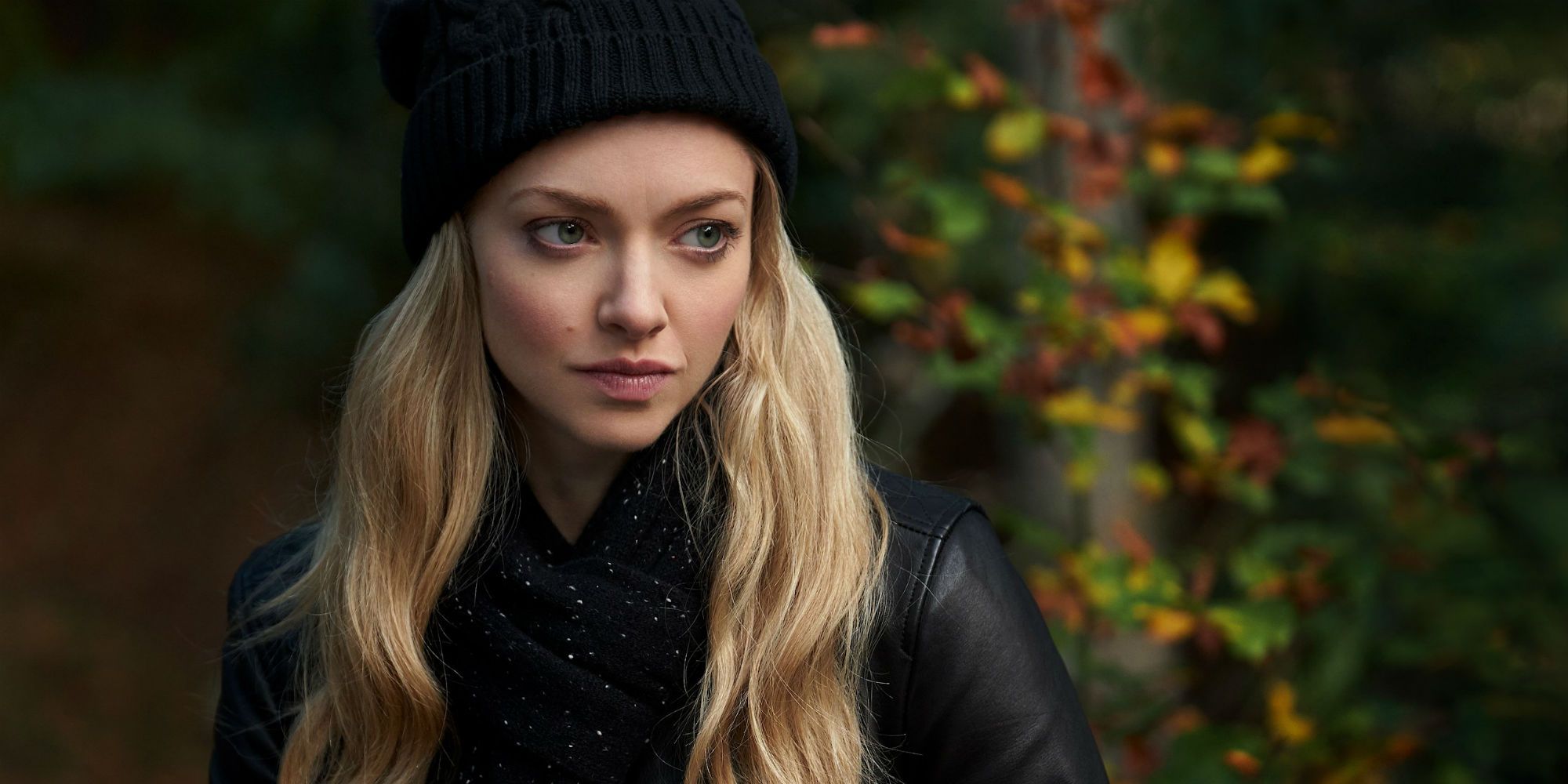Blumhouse has become an extremely well-known production company over the years. They first started to garner the public's attention back in 2009 with Paranormal Activity and have since gone on to produce a number of fantastic horror films over the years. Not only that, but they've also helped produce a number of critically-acclaimed dramas, including Whiplash and BlacKkKlansman, along with several different shows. Now, hot on the heels of their latest success story, The Invisible Man, Blumhouse's new release dives into the realm of psychological horror with the help of Jurassic Park screenwriter David Koepp, reuniting him with his Stir of Echoes star, Kevin Bacon. You Should Have Left often feels like a watered-down version of The Shining, but Koepp still manages to maintain interest in its mind-bending story.
Based on the novella by Daniel Kehlmann, You Should Have Left centers on Theo Conroy (played by Bacon), a wealthy man with a mysterious past who's married to a much younger woman named Susanna (played by Amanda Seyfried). Together, they also have an adorable young daughter named Ella (Avery Essex). However, Theo and Susanna's relationship is riddled with issues, especially on Theo's end as he grapples with a variety of insecurities revolving around Susanna. Their relationship lacks trust and stability, and the rollercoaster of emotions that Theo experiences with Susanna never seems to find solid ground, no matter how many times he meditates or journals his feelings away.
So, in the hopes of being able to mend their crumbling relationship, Theo offers up the idea of taking some time away as a family to reconnect. They stumble across a home online that's nestled away in the Welsh countryside, described as "a place to relax and contemplate," and decide to rent it. However, this modern home's cold interior is far from welcoming, and the promise of a place to contemplate takes on a brand new meaning once instances from Theo's past begin bubbling to the surface. It's clear that something sinister lies within the many hallways of this massive house, and it's not about to let Theo and his family walk away unscathed.
From the beginning, You Should Have Left boasts a lot of promise. Beautiful camerawork from Angus Hudson coupled with an interesting opening sequence kicks things off on the right foot. In addition to this, even though its plot treads on familiar ground for horror movies, Bacon and Seyfried also do a phenomenal job of capturing viewer's attention right from the get-go. Their relationship is very complex, and the exploration into Theo's issues with jealousy and trust is one of the film's most interesting aspects, especially as his psychological fears start to take on physical manifestations. Both of them bring a lot of personality and depth into their respective roles, and even Essex has plenty of time to shine as their daughter (even though she's sometimes far more mature than one would expect a six-year-old to be).
Its plot is also strikingly similar at times to The Shining, but never reaches the same unsettling heights as Kubrick's film. In particular, once the movie starts making its way into its third act, the story starts to veer off course as it leans more heavily into cliched horror tropes. This is especially prevalent once it begins wrapping up the storyline surrounding the home itself and its creepy history, which feels rushed and weirdly out of place. When it finally comes around to addressing some of the important questions laid out at the beginning, it's clumsy in its execution and ultimately thins out the rich narrative Koepp started out with. It's convoluted and unbalanced, putting You Should Have Left in the position of stumbling towards the finish line.
This is mainly due to how well the groundwork is laid for a psychological thriller at the beginning. The unhealthy dynamic between Theo and Susanna roots the film in a very realistic premise, and watching Theo's fears resurface in such creative fashions, later on, provides some of the most unsettling scenes in the movie. If Koepp had stuck with that instead, it would've made for a far more investing feature. Bacon, especially, does a phenomenal job diving into Theo's psyche and exposing what makes him tick. Unfortunately, due to the movie's fumbling third act, it loses its grasp on what made it so captivating from the start. You Should Have Left may not be as gripping as The Invisible Man, but it's still a fun thriller that's perfect for the streaming service crowd.
You Should Have Left is now available to watch on-demand. It's 93 minutes long and rated R for some violence, disturbing images, sexual content, and language.


